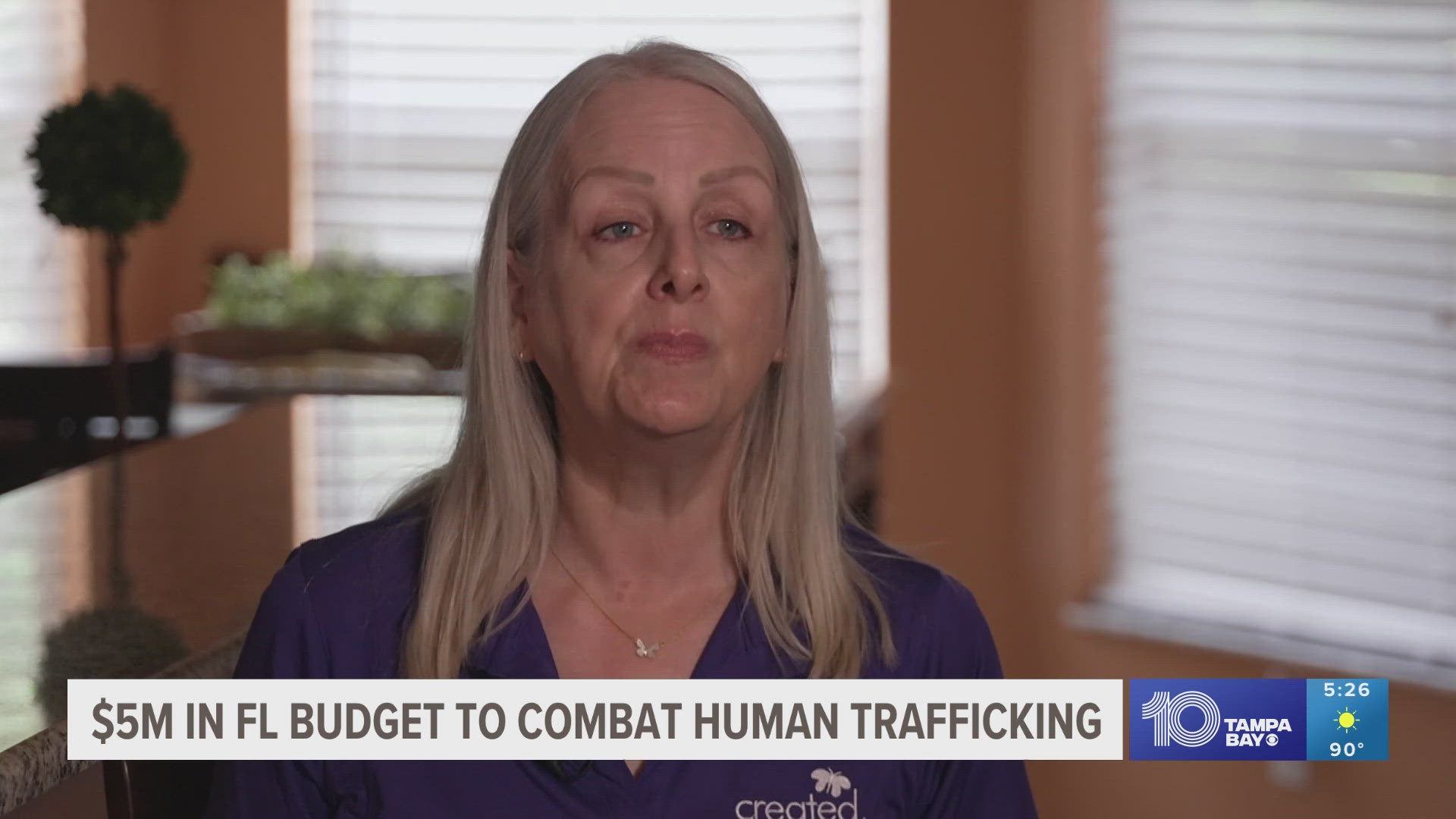TALLAHASSEE, Fla. — Florida ranks third in the country for reported cases of human trafficking. Now, new resources have been announced to combat that glaring issue.
On Monday, Gov. Ron DeSantis announced nearly $4.9 million in next year's budget will go toward expanding access to emergency beds for victims of human trafficking and additional staff support. Another $900,000 in grant opportunities through the Department of Children and Families will be available to enhance training for law enforcement officers who respond to human trafficking incidents.
Lurlene Diaz, the executive director of Created Tampa, a non-profit combating human trafficking around Tampa Bay, said demand for emergency beds is constant.
"Every agency I know of has a waitlist of about three months," Diaz said. "If we want to truly combat and end human trafficking, we need a place for these men and women to come to."
She said emergency beds and long-term housing are essential to help survivors of human trafficking heal, and in some cases, escape the cycle of trafficking in the first place.
"When I sat down in the living room with these women, I said, 'Just tell me what it's like being trafficked, and why did you stay?' 100% of the women said they didn't know how to get out and didn't know what resources would be available if they did get out," Diaz said.
Nicole Dolack is the outreach coordinator at Selah Freedom, a Sarasota-based non-profit that supports human trafficking survivors. She said Selah Freedom has had a consistent waiting list for its services for the last three years.
"The demand is high and there are not many programs in Florida," Dolack said.
She said the nearly $5 million in state funding will help programs like theirs and Created Tampa keep women safe.
"We want to get them away from their trafficker and out of any unsafe situation that they're in," Dolack explained. "And they're able to finally rest and reflect and be present in the moment and focus on themselves and treatment."
The St. Petersburg Police Department already has a special division focused on such work, led by Major Nathaly Patterson of the Investigative Support Division.
"If it's a call of a human trafficking nature, then they have the ability to outsource that to detectives that are trained in that area, and they have the special skills to work those cases," Major Patterson explained. "The majority of agencies, if they don't have a human trafficking unit, they have one individual that's working those types of cases. That money is going to go quickly."
On Monday, Gov. DeSantis also signed HB 7063 into law. The law requires various public facilities or other establishments that may encounter human trafficking activity to display human trafficking awareness signs with telephone numbers for either the National or Florida Human Trafficking hotlines and increases punishments for failure to do so. It also prohibits minors from being employed by an adult entertainment establishment in any role and increases punishments for those who knowingly violate this law.

